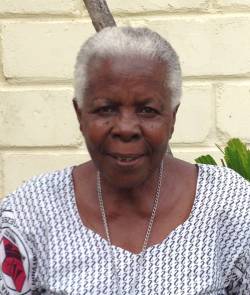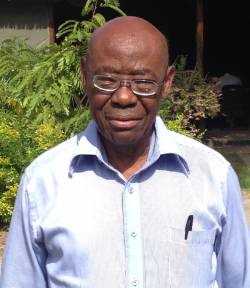Natalie Idehen, from our sister organisation Age UK, is undertaking a 3 month secondment in our office in Tanzania. She is supporting our media and communications work, as well as our capacity to gather and present evidence of our impact.
 In Tanzania between 2005 and 2011, approximately 500 older people were murdered due to suspicions that they were witches. Worryingly, these numbers are increasing.
In Tanzania between 2005 and 2011, approximately 500 older people were murdered due to suspicions that they were witches. Worryingly, these numbers are increasing.
Indeed, the Tanzanian annual human rights report showed that 630 people were killed due to witchcraft accusations in 2012. This rose to 765 in 2013, of which 505 were women. Killings based on witchcraft allegations are a growing problem experienced by older people, and specifically older women.
Belief in witchcraft widespread
This picture is at odds with the commonly held assumption that respect for older people is a deeply ingrained feature of African society. The belief that misfortune; such as illness, death or financial problems are the result of witchcraft is a widespread cultural belief that cuts across all classes in society. This leads to the labelling of the most marginalised and those that are least able to defend themselves from such accusations – mostly older women.
Once someone is perceived to be performing witchcraft, punishment from the community is meted out, often by mob justice, and is brutal and degrading. Recent cases include older people being buried alive and stoned to death.
Lack of action to stop killings
 Clotilda, 80, from the Kigoma region, spoke about the labelling of older women as witches: “Women are often accused of practising witchcraft because they have red eyes. Women do the cooking at home and the redness comes from the smoke produced from cooking with firewood, not from witchcraft.”
Clotilda, 80, from the Kigoma region, spoke about the labelling of older women as witches: “Women are often accused of practising witchcraft because they have red eyes. Women do the cooking at home and the redness comes from the smoke produced from cooking with firewood, not from witchcraft.”
Samson, 80, from Morogoro region, highlighted the views of older people’s groups in the affected regions: “There has been a cry to the government to stop the killings for so many years from older people’s organsations in these regions.
“Yet we do not see to this day that there has been any reduction in the killings or any practical solutions, in comparison to the killing of Albinos that was taken very seriously by the government.”
HelpAge in Tanzania has launched a three year project in the Mwanza and Kagera regions. Both regions have high incidences of witchcraft-related killings, specifically targeting older people.
Tackling witchcraft accusations at all levels
This integrated programme, among other things, aims to address the underlying socio-cultural, economic and gender issues that make older men and women the target of discrimination. Aiming to tackle the problem at the community, district, regional and national level, the project will, among other things:
- Provide paralegal training to older people, enabling them to raise awareness of their rights, as well as to provide legal advice, counselling and referrals to people at risk of accusations or those that have been victimised.
- Support older women to earn a living which will in turn raise their social standing in the community, making them less vulnerable to allegations of witchcraft.
Violence against older people is a global issue. We should be celebrating ageing and the invaluable contribution older people make. Everyone has the right to life; no one should have to live in fear of growing older.
HelpAge International is calling for a UN convention on the rights of older people that would help set standards for legislation that will prohibit violence against older people.
Sign the Age Demands Action petition for a new UN convention on the rights of older people.
